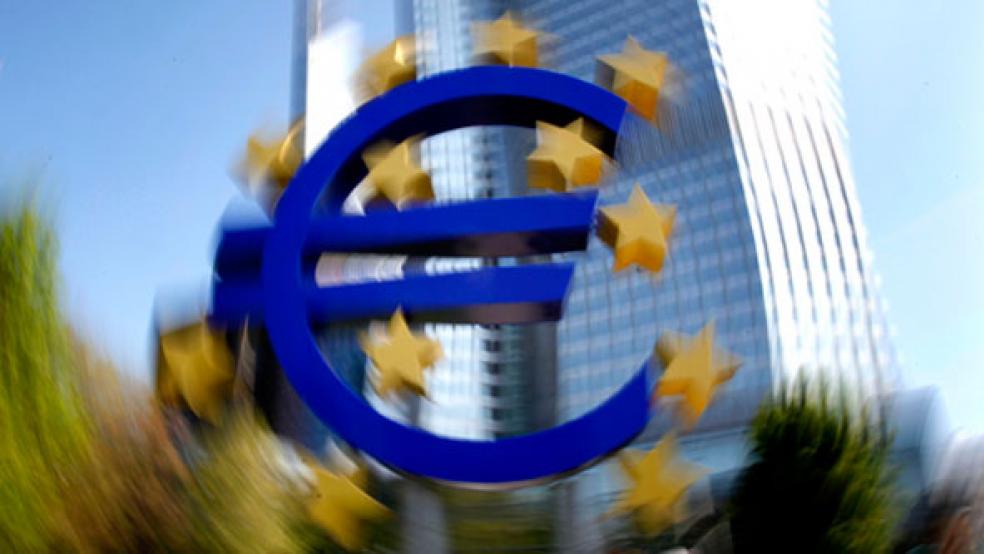Britain’s June 23 referendum on its European Union membership is wracking the world’s nerves now. And no wonder: As every world leader to weigh in on the question asserts, the negative consequences of a British exit—political, diplomatic, financial, economic, and commercial—will echo everywhere.
But Prime Minister Cameron, the tirelessly campaigning leader of the “In” camp, needs to consider another question as referendum day draws near: What happens if the Ins prevail and a “Brexit” is averted?
Related: Despite Cameron’s ‘Deal,’ a Brexit Could Still Cripple the EU
The argument here is simple if not appealing. Britain or any other member can make a damn good case for baling out of a union that has foregone its ideals. But in practice the European project has emerged after half a dozen tough years as another case of “too big to fail.”
It’s no surprise that financial markets are rattled and Britain’s allies, not least the U.S., betray late-in-the-game signs of quivering. Opinion polls now have the In and Out camps in a dead heat—45 percent for the Ins to 43 percent for the Outs, according to the Financial Times’ poll tracker.
But take this question apart and those favoring continued membership have a decisive advantage going into the vote, the catch being there’s no going back to the status quo thereafter.
There are lessons from the vote on Scottish independence last year. Scots had plenty of reasons—good ones—to favor a split from Great Britain, but when put to a vote their spirited campaign came up short.
Scots favoring independence campaigned partly on political principle and partly with a deep-rooted variety of identity politics. Economic realities that would’ve reached into every Scottish household were less stirring but won the day.
Related: Brexit Would Leave EU Less Liberal, Less Atlanticist
This is the In camp’s advantage. Different analysts put out different numbers, but by all measures the economic fallout of a Brexit vastly outweighs the Out camp’s arguments when it comes to British GDP, jobs, inflation rates, investment, currency values, trade with Europe, and, far from least, Britain’s global position.
In some ways the Brexit camp has a good case for leaving the E.U., just as the Scots had a sound argument last year. They take issue with immigration, the balance of Britain’s contribution to the E.U., and the power of unelected bureaucrats in Brussels to impose unpopular regulations across the union’s membership. If Cameron prevails, none of these issues is likely to resolve.
However, after months as a muted voice among E.U. members, Cameron can turn Britain into a pointedly activist member and push Brussels toward solutions to the very problems that forced him to promise Britons a referendum several years ago.
Cameron had extended negotiations with E.U. officials last year, during which he sought to alter the terms of Britain’s membership so as to mollify Ukip (the United Kingdom Independence Party) and other vociferous Outs. He came home last February with a mixed result—and plainly not enough to blunt the appeal of the Brexit side.
Related: Markets May Be Too Complacent Over Brexit Risk, Blackrock Says
But there’s nothing to say he can’t take up the cause of E.U. renovation again when he’s able to return and say, “It’s settled. We’re staying. Now I want to set some balls in motion.”
The list of questions any British leader needs to engage derives partly from the Outs’ catalogue of complaints and partly from problems in E.U. institutions that need urgently to be addressed in any case:
Immigration. The flow of migrants across Europe is the most pressing problem the E.U. faces except for one: Not even Chancellor Merkel, whose generosity in opening Germany’s door last year remains unmatched, has been able to establish a system that distributes the burden fairly, if not evenly in numerical terms. Address this, with Merkel as an ally, and Cameron can at least try to counter his domestic critics (whose xenophobia sometimes bursts the bounds of decency) while bringing needed order to the E.U.
Chances of success: Good. Above the odds given Britain’s weight in the union.
Regulation. Cameron’s big argument in talks last year was for a “special status” whereby Britain opts out of the “ever closer union” clause enshrined as an E.U. principle. With the backing of half or more of other members’ legislatures, Britain can use a new mechanism to block EU proposals. This was greeted as half a loaf when Cameron came back from Brussels with his deal last February, but half a loaf’s now something he can build upon. Imposing some form of political control over Brussels’ administrative institutions will do everyone a lot of good, enabling Britain (and all others) to draw a line under the autonomy of unelected Eurocrats.
Chances of success: Pretty good. The cause stands to draw support from other aggrieved members providing Cameron advances it in the interests of all of them.
Related: Global Stocks Slide on Brexit Fears as Investors Seek Safety
Perestroika, EU–style. Britain’s gripes reflect the far larger problem of how power is distributed within the E.U. structure. Brussels and Frankfurt, seat of the European Central bank, have long enjoyed too much, while Strasbourg, home of the European Parliament, counts for very little. Fixing this will serve all individual members well and help revive some of the spirit of unity the E.U. squandered as it imposed unpopular austerity measures after the 2010 crisis, openly overruling democratic process in the Greek case.
Chances of success: Fair. It’s also a long-term task, and Cameron has zero chance of being around to see it completed.
Too big to fail’s never an appealing thought. Pushing institutions back from the edge of failure is, and if Cameron’s truly the European he claims to be, he’ll think of his victory June 23 this way—assuming he wins.






